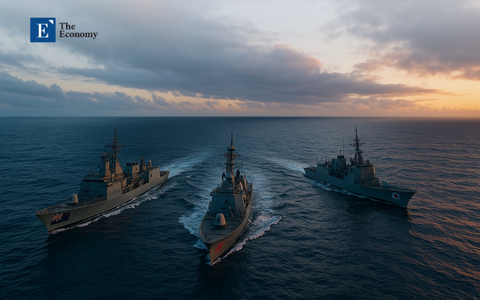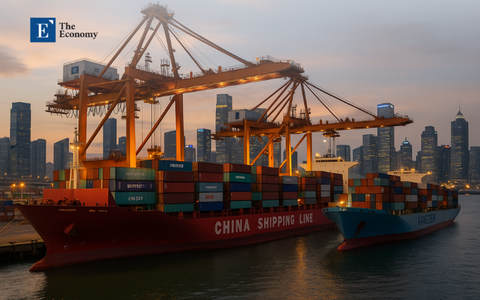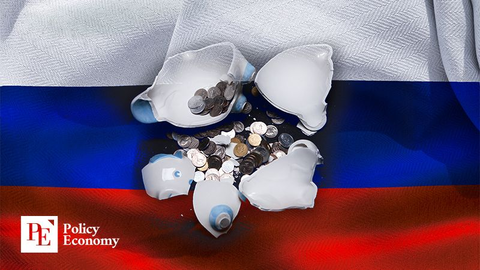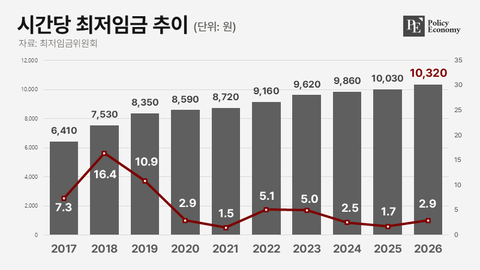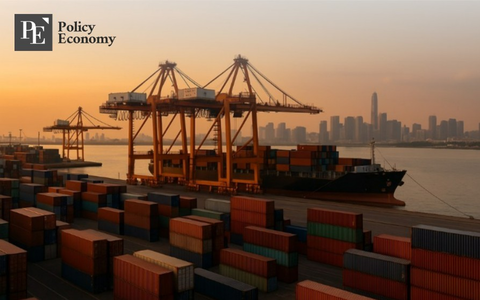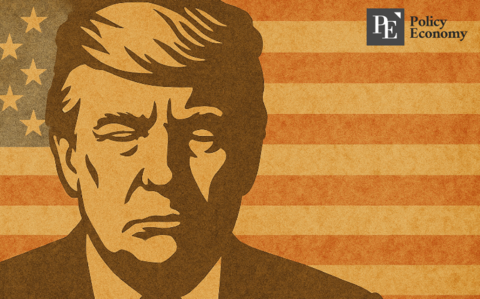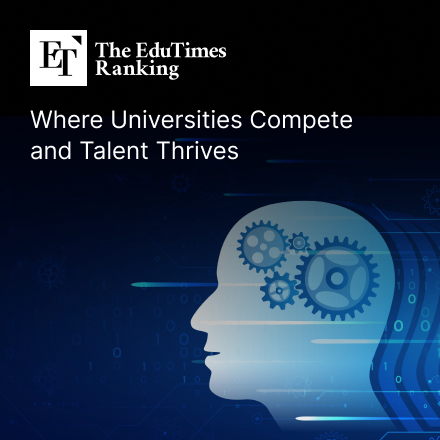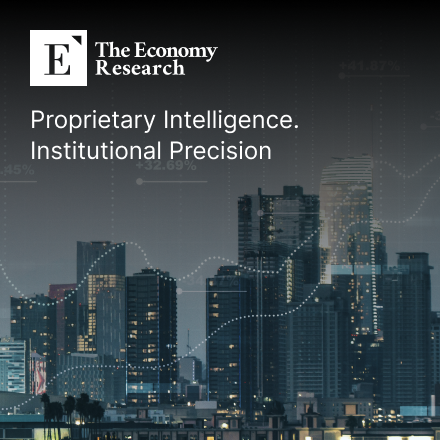입력
수정
[동아시아포럼]은 EAST ASIA FORUM에서 전하는 동아시아 정책 동향을 담았습니다. EAST ASIA FORUM은 오스트레일리아 국립대학교(Australia National University)의 크로퍼드 공공정책 학교(Crawford School of Public Policy) 산하의 공공정책과 관련된 정치, 경제, 비즈니스, 법률, 안보, 국제관계 및 사회에 대한 분석 및 연구를 위한 플랫폼입니다.
저희 폴리시코리아(The Policy Korea)와 영어 원문 공개 조건으로 콘텐츠 제휴가 진행 중입니다.
미국과 중국이 글로벌 경쟁을 이어가며 동남아시아 국가들 역시 갈라지고 있습니다. 하지만 이러한 선택은 초강대국 간의 경쟁을 심화하고 동남아시아 지역에도 신냉전이 발발하는 결과로 이어질 수 있습니다. 동남아시아의 미래는 미국과 중국이 평화를 위해 새로운 합의를 하도록 설득하는 데 달려 있습니다.

‘투키디데스의 함정(Thucydides Trap)’이라는 말이 있습니다. 신흥 강대국이 부상하면 기존 강대국이 이를 견제하면서 전쟁이 일어난다는 것입니다. 미국 정치학자 그래엄 앨리슨(Graham Allison)이 처음으로 쓴 용어로 고대 아테네의 역사학자이자 장군인 투키디데스가 자신의 저서 ‘펠로폰네소스 전쟁사’에서 “(펠로폰네소스) 전쟁을 피할 수 없게 만든 건 아테네의 부흥과 이것이 스파르타에 심어준 공포”라고 지적한 데서 유래했습니다.
요즘 국제 정세가 딱 그렇습니다. 신흥 강대국에 중국, 이를 견제하는 기존 강대국에 미국을 대입하면 되죠. 하지만 강대국은 전쟁은 고사하고 냉전도 할 상황이 아닙니다. 냉전이 뚜렷한 형태를 갖추기까지는 일련의 통제할 수 없는 사건, 오해, 지나치게 낙관적인 계산이 필요했습니다. 또한 1980년대 미국과 소련의 최고 지도자들이 데탕트(detente)가 서로의 이익에 부합한다는 데 동의하면서 양 진영의 긴장은 빠르게 완화됐습니다. 소련이 중국으로 바뀌었다고 해도 이미 한 번 성공한 일입니다. 이번에도 미국과 중국이 평화로운 공존과 책임 있는 경쟁을 허용하는 합의를 위해 노력할 수 있다는 뜻입니다.
동남아시아는 그러한 노력의 출발점으로 적합합니다. 아세안(ASEAN) 국가들은 강대국들이 실존적 투쟁을 이어 나가는 것보다 협력할 때 자신들의 이익이 더 커진다고 생각하기 때문입니다. 거의 모든 국가가 미국과 동맹 관계인 유럽과 달리 동남아시아는 동맹을 체결하지 않는 방식을 선호합니다. 역사를 보면 알 수 있죠.
동남아시아에서의 새로운 미중 공존의 핵심은 미국도 중국도 이 지역을 지배할 수 없다는 합의가 되어야 합니다. 두 나라는 미국이 냉전 때 서유럽 지역에서 그랬던 것처럼 아세안 국가들을 한데 묶어두고 압력을 행사해서는 안 됩니다.
또한 미국은 중국 공산당에 대한 비판 수위를 낮추고 중국의 지역적, 세계적 위상을 인정해야 합니다. 세계은행에서 더 큰 의결권을 행사할 수 있게 허용한다든지 하는 방식으로 점점 더 커지는 중국의 세계적 영향력을 국제기구에 반영할 필요도 있죠. 그 대가로 중국은 동남아시아에 대한 미국의 정당한 이익을 인정하고, 현재의 규칙 기반 질서를 뒤집지 않겠다는 약속을 해야 합니다.
미국과 중국은 모두 동남아시아를 위해 다시 짜인 포괄적인 안보 프레임워크를 지원할 수 있습니다. 여기에는 해상 분쟁이나 군사력 증강 같은 전통적인 안보 문제는 물론이고 기후 변화, 초국가적 범죄 등 경제적 및 비전통적 문제가 포함돼야 합니다. 모든 안보 문제가 해결되면 동남아시아는 더 안전해지고, 초강대국이 전략적 신뢰를 구축하는 데도 도움이 될 것입니다.
한편 동남아시아에서의 미중 합의를 위해선 양자 및 지역 포럼에서의 고위급 회담이 재개돼야 합니다. 이러한 대화는 불필요한 오해나 군사적인 충돌, 그리고 지역 공급망을 총체적으로 망가뜨리거나 지역 경제와 정치 안보에 막대한 비용을 초래할 수 있는 경제적 단절을 예방합니다.
또한 미국과 중국은 신뢰 구축을 위한 파일럿 프로젝트를 위험이 낮은 지역에서 시작할 수 있습니다. 예를 들면 질병 감시 네트워크 구축을 지원하고, 연구와 모범 사례를 공유하는 등 동남아시아 국가에 교육과 자원을 제공하면서 지역 공중 보건 역량 강화 협력에 나설 수 있죠. 이는 건강에 대한 위협을 적시에 해결하면서 신뢰를 구축하고 더 복잡한 문제를 해결하는 토대가 될 것입니다.
아세안은 회원국과 파트너 모두를 위해 지역 규범을 강화하는 조치를 통해 미국과 중국의 협력을 적극적으로 지원할 수 있습니다. 강대국과의 이슈 기반 파트너십을 장려하고, 새로운 지역 이니셔티브를 구축하면 인도-태평양에 대한 아세안의 전망에 힘을 싣고 이를 실현할 수도 있죠. 즉 아세안지역안보포럼(ASEAN Regional Forum), 아세안국방장관회의플러스(ASEAN Defence Ministers’ Meeting Plus), 동아시아정상회의(East Asia Summit) 등 자체 다자간 포럼을 새롭게 단장해 단순 불만 표출이 아닌 안보 문제를 논의하는 플랫폼으로 만들어야 합니다.
중요한 것은 회원국들이 스스로 아세안의 전략적 자율성을 강화하고자 더욱 노력하는 것입니다. 강력한 자율성을 지닌 아세안만이 지역의 안정, 번영, 그리고 전략적 균형을 효과적으로 보호할 수 있습니다.
또한 아세안은 다양한 채널을 통해 지역의 움직임이나 문제에 대한 견해를 초강대국에 적극적으로 제공해야 합니다. 이는 미국과 중국 모두의 의사 결정에 도움이 될 것입니다.
뭔가 엄청나게 큰일을 해야 동남아시아에서의 미국-중국 합의가 훌륭하게 이루어지는 것은 아닙니다. 양국의 신뢰를 높이고 경쟁에 제동을 걸 수만 있다면 이러한 합의는 성공이기 때문입니다. 그렇게만 되면 다른 지역에서도 비슷한 시도를 해 볼 수 있을 것입니다.
미국과 중국은 전략적 경쟁을 계속해 나가면서 과거로부터 교훈을 얻고, 협력과 평화적인 공존의 기회를 모색해야 합니다. 동남아시아 국가들은 이들에게 중립적이고 포용적인 대화의 장을 제공하고 신뢰 구축과 협력에 도움이 되는 환경을 조성함으로써 이 과정에서 중요한 역할을 할 수 있고, 또 그래야만 합니다.
Towards a new US–China modus vivendi in Southeast Asia
As the United States and China continue to engage in a global tug of war, Southeast Asian nations are increasingly pushed to take sides. But taking sides could exacerbate superpower rivalry and risk turning the region into battleground like it was during the Cold War. Southeast Asia’s future hinges on persuading Washington and Beijing to strike a new modus vivendi.
Despite all the talk of a Thucydides Trap, great powers are not destined for war — even cold ones. It took a series of uncontrollable events, misperceptions and over-optimistic calculations for the Cold War to take shape. US–Soviet relations quickly thawed in the 1980s when top leaders on both sides agreed that detente was in both their interests. If the United States and the Soviet Union could do it once before, there is no reason why China and the United States cannot work towards an agreement that allows for peaceful coexistence and responsible competition today.
While US and Chinese leaders may find it difficult to negotiate an all-encompassing modus vivendi quickly, they can begin to initiate such efforts in Southeast Asia. Southeast Asia is the right place to start because the ASEAN countries already believe that their interests are better served when the superpowers cooperate rather than engage in existential struggle. Unlike Europe, where most countries are allied to the United States, Southeast Asia has historically preferred non-alignment.
The centrepiece of a new US–China modus vivendi should be the mutual acknowledgment that neither the United States nor China can dominate the region. They should not force ASEAN countries into a monolithic bloc like the United States did in Western Europe during the Cold War.
The United States should also tone down its criticism of the Chinese Communist Party and acknowledge China’s regional and global status. Washington should support changes to international institutions that reflect China’s increasingly global influence, for example, with larger voting rights in the World Bank. In return, China should acknowledge legitimate US interests in Southeast Asia and credibly signal that it will not overturn the current rules-based order.
The United States and China could both support a reconceptualised comprehensive security framework for Southeast Asia. That framework should encompass traditional security concerns such as maritime disputes and military build-ups, as well as economic and non-traditional challenges like climate change and transnational crime. Addressing the full spectrum of security issues would not only make the region safer but would help the superpowers foster strategic trust.
A regional modus vivendi will require the United States and China to resume high-level talks both bilaterally and in regional forums. Such talks help avoid misunderstandings and military accidents. They would also prevent economic decoupling, which unchecked could cause a total breakdown of regional supply chains and huge costs to regional economic and political security.
The United States and China could initiate pilot trust-building projects in low-stakes domains. For instance, they could work together to enhance regional public health capacities by supporting the establishment of disease surveillance networks, sharing research and best practices and providing training and resources to Southeast Asian nations. This cooperation would help address existing and emerging health threats in a timely manner, while building confidence and laying the groundwork to tackle more complex challenges.
ASEAN can actively assist the United States and China to achieve such a modus vivendi. It can do so by renewing efforts to increase the binding power of regional norms for both member countries and its partners.
ASEAN can mainstream and operationalise the ASEAN Outlook on the Indo-Pacific by encouraging issue-based partnerships with great powers and advancing new regional initiatives. It can renew and upgrade its own multilateral forums — including the ASEAN Regional Forum, the ASEAN Defence Ministers’ Meeting Plus and the East Asia Summit — to ensure that they can serve effectively as platforms to discuss security issues rather than the mere airing of grievances.
Importantly, member states should elevate efforts to enhance ASEAN’s strategic autonomy. Only an ASEAN that is robustly autonomous can effectively safeguard the region’s stability, prosperity and strategic equilibrium.
ASEAN should also actively provide the superpowers with nuanced and up to date insights into regional dynamics and concerns through diverse channels, which would help to inform both US and Chinese decision-making.
A US–China modus vivendi in Southeast Asia does not have to be ambitious to be effective. As long as it promotes a sense of trust between the superpowers and puts some limits on their competition, the model would work and could be replicated in other regions.
As the United States and China continue to navigate their strategic competition, they need to learn from the past and explore opportunities for cooperation and peaceful coexistence. Southeast Asian countries could and should play a vital role in this process, by providing a neutral and inclusive theatre for dialogue and fostering an environment conducive to trust-building and collaboration.

